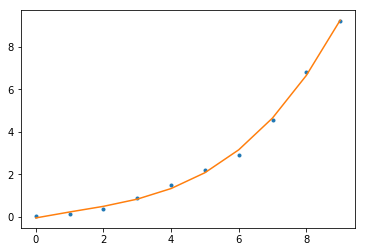Let's say we're solving a regression problem where $X$ is an $n \times p$ matrix, $Y$ is $n \times 1$, and $\beta$ is $p \times 1.$
Then if we use the naive approach to solving the least squares problem, $\hat{\beta} = (X^{T}X)^{-1}X^{T}y$, the complexity is $O(np^2 +p^3 + np + p^2)$ if we use Cholesky decomposition to compute the inverses.
But what does this actually mean? Can I simulate some data, solve the least squares problem, and confirm this result numerically by looking at how long the function took to run?

